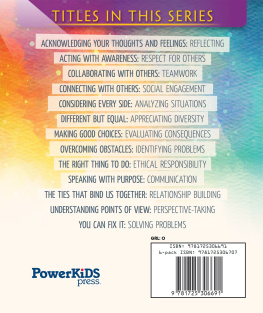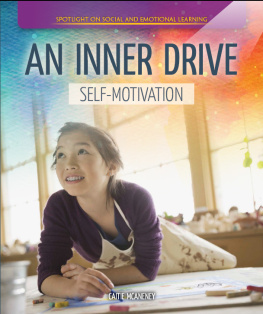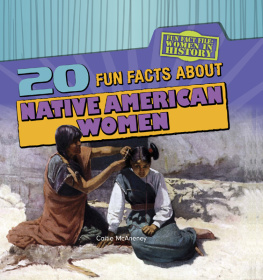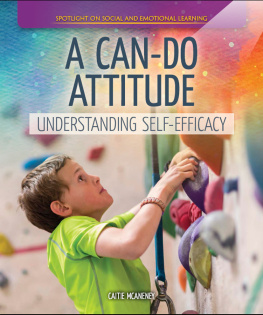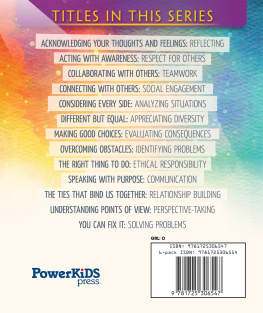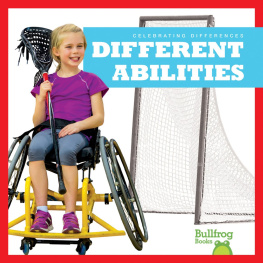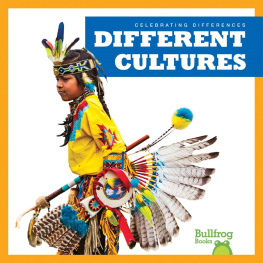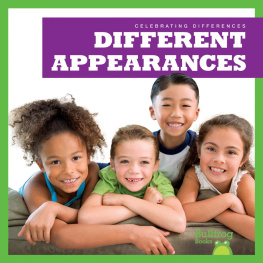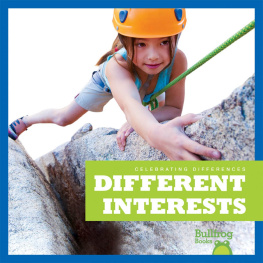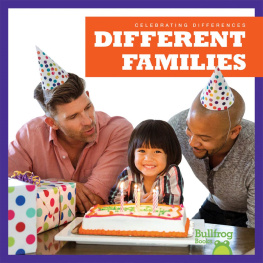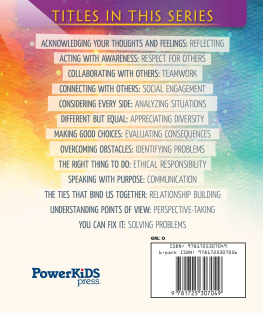
Published in 2020 by The Rosen Publishing Group, Inc.
29 East 21st Street, New York, NY 10010
Copyright 2020 by The Rosen Publishing Group, Inc.
All rights reserved. No part of this book may be reproduced in any form without permission in writing from the publisher, except by a reviewer.
Editor: Elizabeth Krajnik
Designer: Michael Flynn
Photo Credits: Cover LWA/DigitalVision/Getty Images; cover, pp..
Library of Congress Cataloging-in-Publication Data
Names: McAneney, Caitie, author.
Title: Different but equal: appreciating diversity / Caitie McAneney.
Description: New York: PowerKids Press, [2020] | Series: Spotlight on social and emotional learning | Includes index.
Identifiers: LCCN 2018059161| ISBN 9781725306691 (pbk.) | ISBN 9781725306721 (library bound) | ISBN 9781725306707 (6 pack)
Subjects: LCSH: Cultural pluralism--Juvenile literature. |
Multiculturalism--Juvenile literature. | Toleration--Juvenile literature.
Classification: LCC HM1271 .M385 2020 | DDC 305.8--dc23
LC record available at https://lccn.loc.gov/2018059161
Manufactured in the United States of America
CPSIA Compliance Information: Batch #CWPK20. For further information contact Rosen Publishing, New York, New York at 1-800-237-9932.
Contents
CHAPTER ONE
A DIVERSE WORLD
The world is a diverse place! When something is diverse, it means that thing is made up of people or things that are different from each other. On Earth, there are many different kinds of landscapes, animals, plants, and people.
People come in all shapes, sizes, and colors. They speak different languages, live in different parts of the world, have different , eat different foods, and come from different family situations. Even though all people are different, that doesnt mean they cant get along. In fact, its important to appreciate, or be grateful for, and celebrate the diversity in our world!
Look around your classroom. How are people different? How are they the same? How can you celebrate peoples differences instead of disliking and complaining about them? Even though not everyone is just like you, all people deserve respect.


The United States of America is a cultural mosaic. This means that its a .
CHAPTER TWO
SOCIAL AWARENESS
Appreciating diversity is part of social awareness. Social awareness is when someone has the ability to empathize with, or understand, others and think about things from their . These other people include people who are different from you and who might come from a background or culture different from yours.
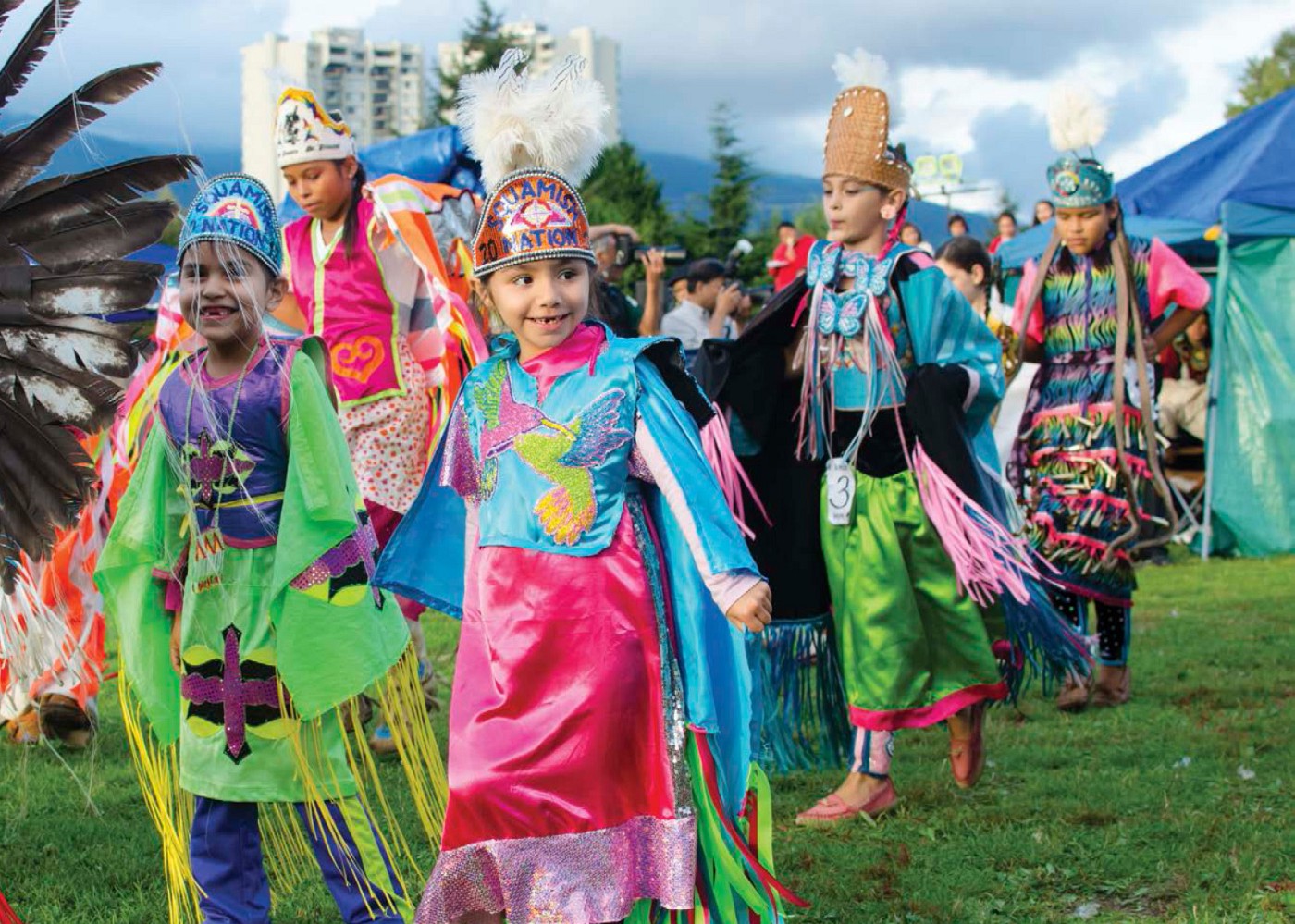
You can celebrate many parts of a culture, including that cultures dances.
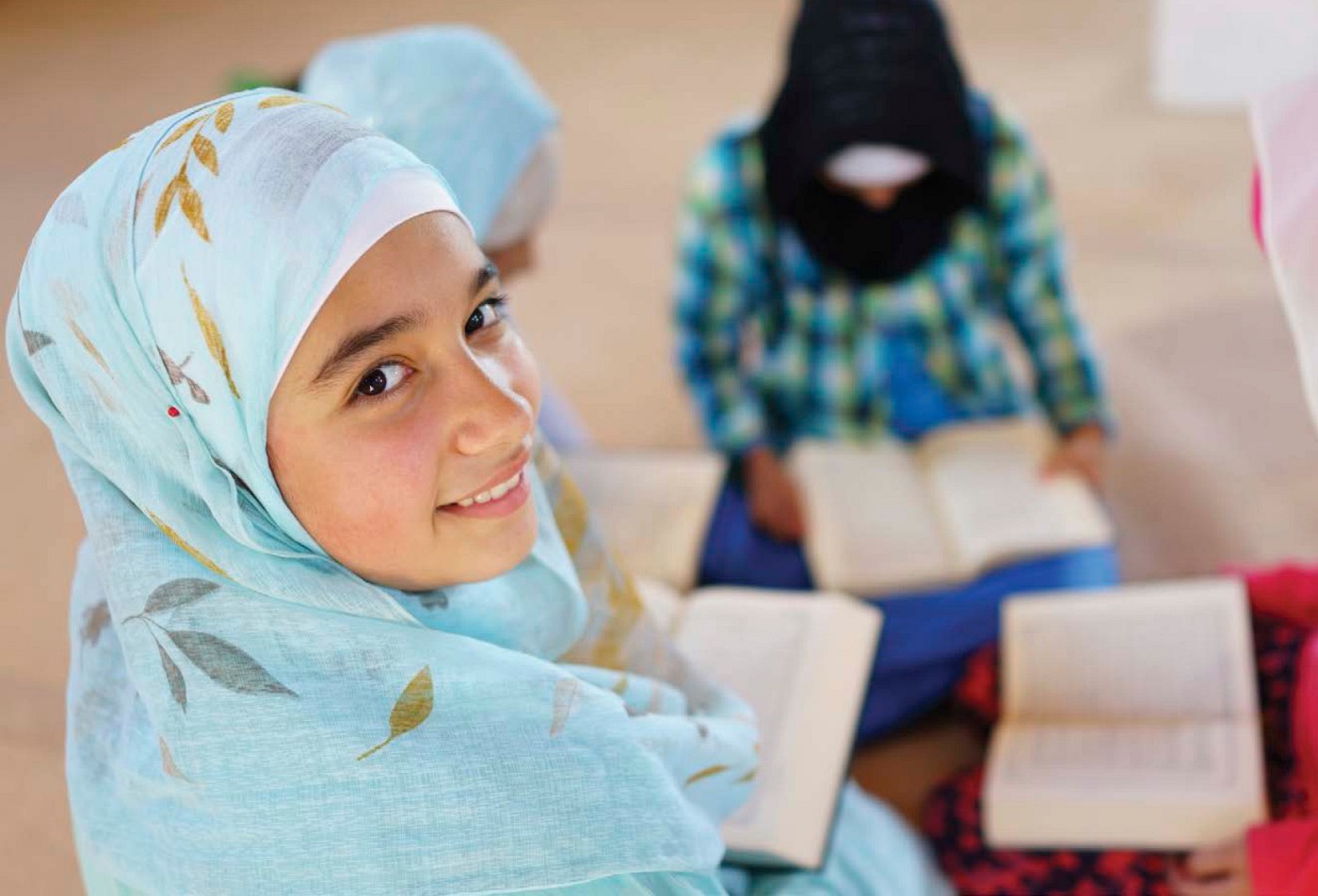
Social awareness also includes the ability to understand and appreciate how people act and feel when they come from different backgrounds and cultures. Different cultures have different social and norms, which are standards of proper or acceptable behavior. These norms may seem strange to you at first. However, if you exercise your social awareness, youll probably learn something new! Above all, social awareness has to do with respecting others no matter how different they may be.
CHAPTER THREE
WHAT ARE DIFFERENCES?
One of the first things people often notice about others is their appearance. People have different skin colors, hair colors, and eye colors. Sometimes, people with similar skin color and features are considered to be part of the same race.
People also have different abilities. Some people can walk easily, while others need to use wheelchairs. Some people learn easily, while others struggle to learn. Just because a person has a different ability doesnt mean they cant achieve their goals!
Everyones background is different, too. Some people have a lot of money to spend, while others dont have much money at all. Some people live in big houses, while others live in small apartments. Some people live with a mom and dad, while others live with one parent, grandparents, foster parents, two moms, or two dads. Every family is different!
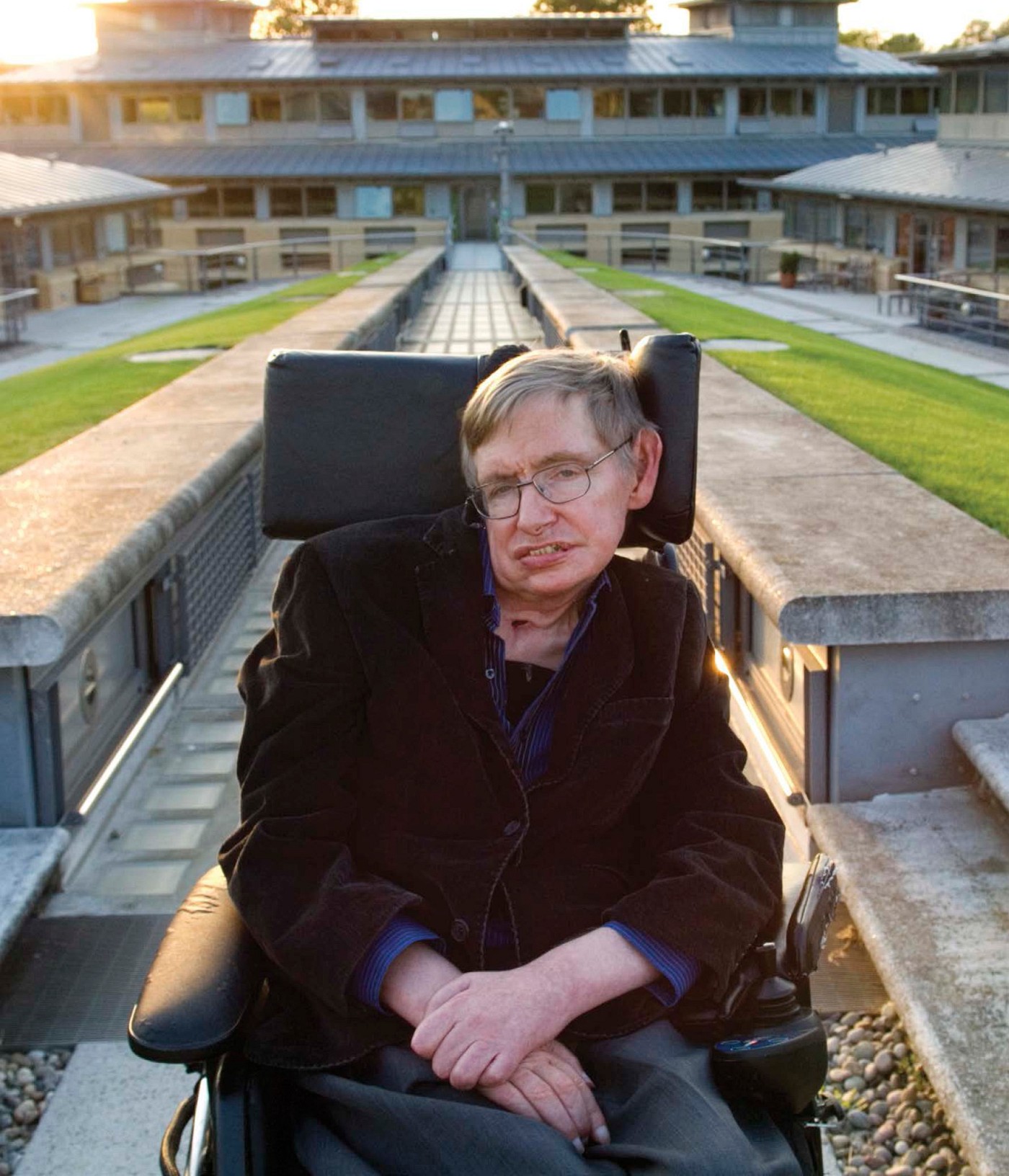
Stephen Hawking spent much of his life in a wheelchair, unable to speak on his own. However, hes one of the most famous scientists in history.
CHAPTER FOUR
THE BENEFITS OF DIVERSITY
Understanding the many benefits of diversity in your community will help you appreciate diversity more. Different kinds of people bring new ideas and opinions to a community. They may bring new skills, products, foods, and talents. These things help the grow.
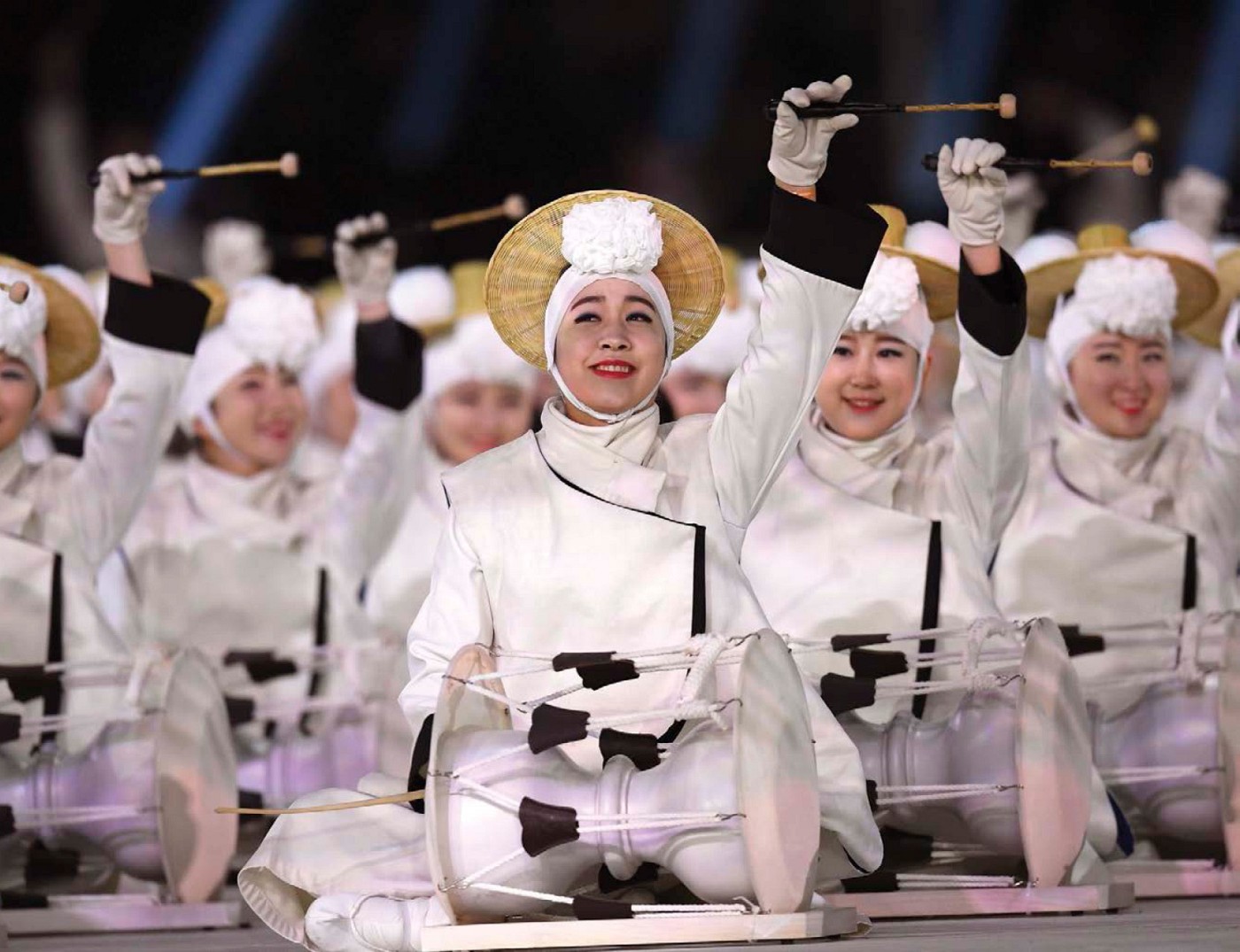
The opening ceremony of the Olympics is a chance for the host country to showcase its culture, history, and successes.
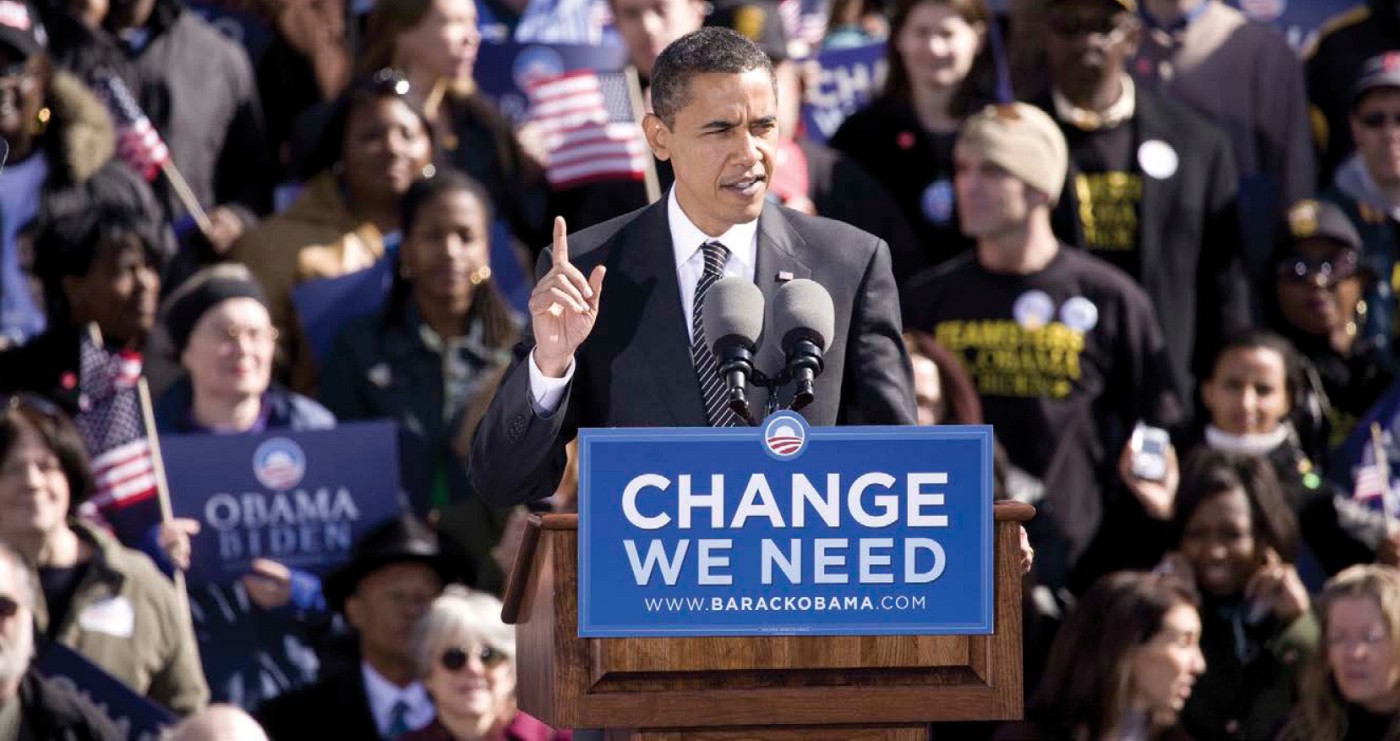
Imagine a world in which everyone listened to the same music, wore the same clothes, ate the same foods, and did the same dances. This would probably be pretty boring! Having a diverse community can introduce people to new art forms, foods, fashions, and cultural knowledge. We can thank people from other countries for foods such as tamales and lasagna, for dances such as samba and tango, and for many different kinds of music.
Working to make our communities more diverse can help society become more fair and just. For example, Barack Obamas presidential brought together people from many backgrounds, united in the idea that, together, we can do anything.
CHAPTER FIVE
SAY NO TO PREJUDICE
Prejudice is an opinion or set of opinions someone has about someone else that isnt based on facts. Its usually based on the persons idea of the other persons race, sex, background, abilities, or appearance. Sometimes people use prejudices as reasons to pay other people less, call them names, leave them out of jobs, or even hurt or kill them.
No one is born with prejudice. Its something that people learn as they grow up. They see how the people around them treat others unfairly or have unfair opinions, and sometimes they their own prejudices. One way to fight prejudice is to learn more about people who are different from you.
When you see someone treating another person unfairly, you can stand up for that other person. Martin Luther King Jr. fought against prejudice, especially racism. Racism is the belief that one group or race of people is better than another group or race.
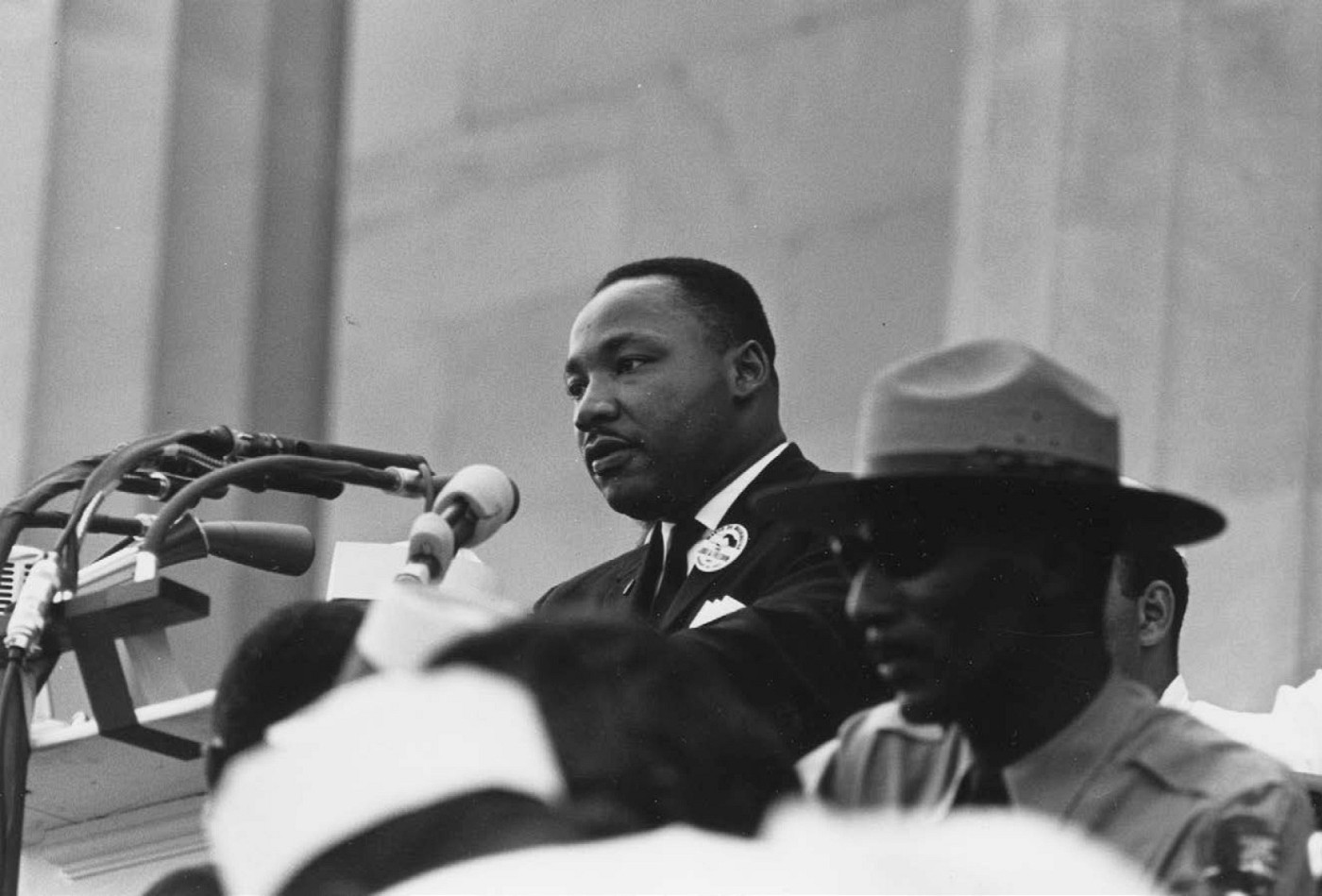
Martin Luther King Jr. once said, I have a dream that my four little children will one day live in a nation where they will not be judged by the color of their skin but by the content of their character.
Next page
